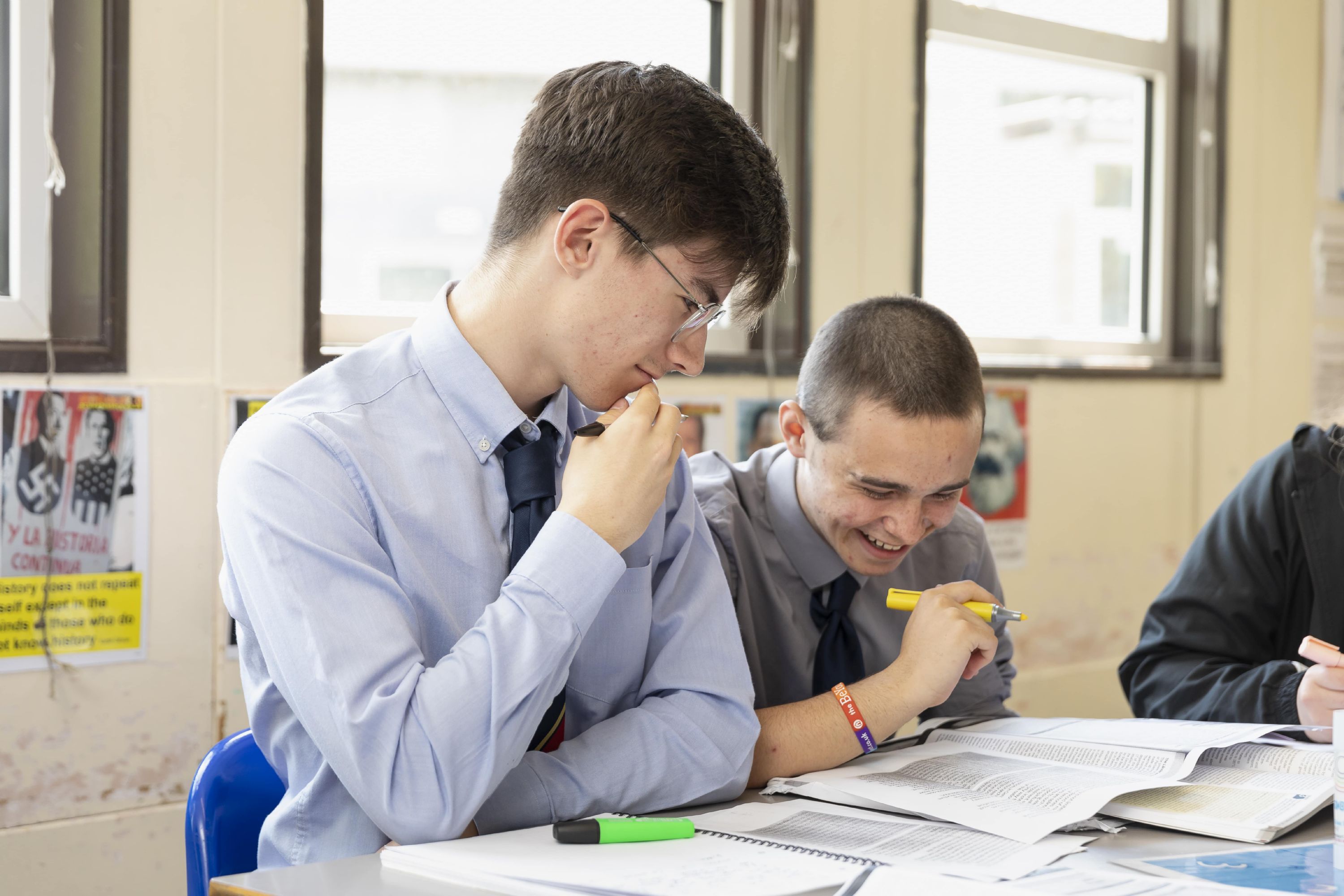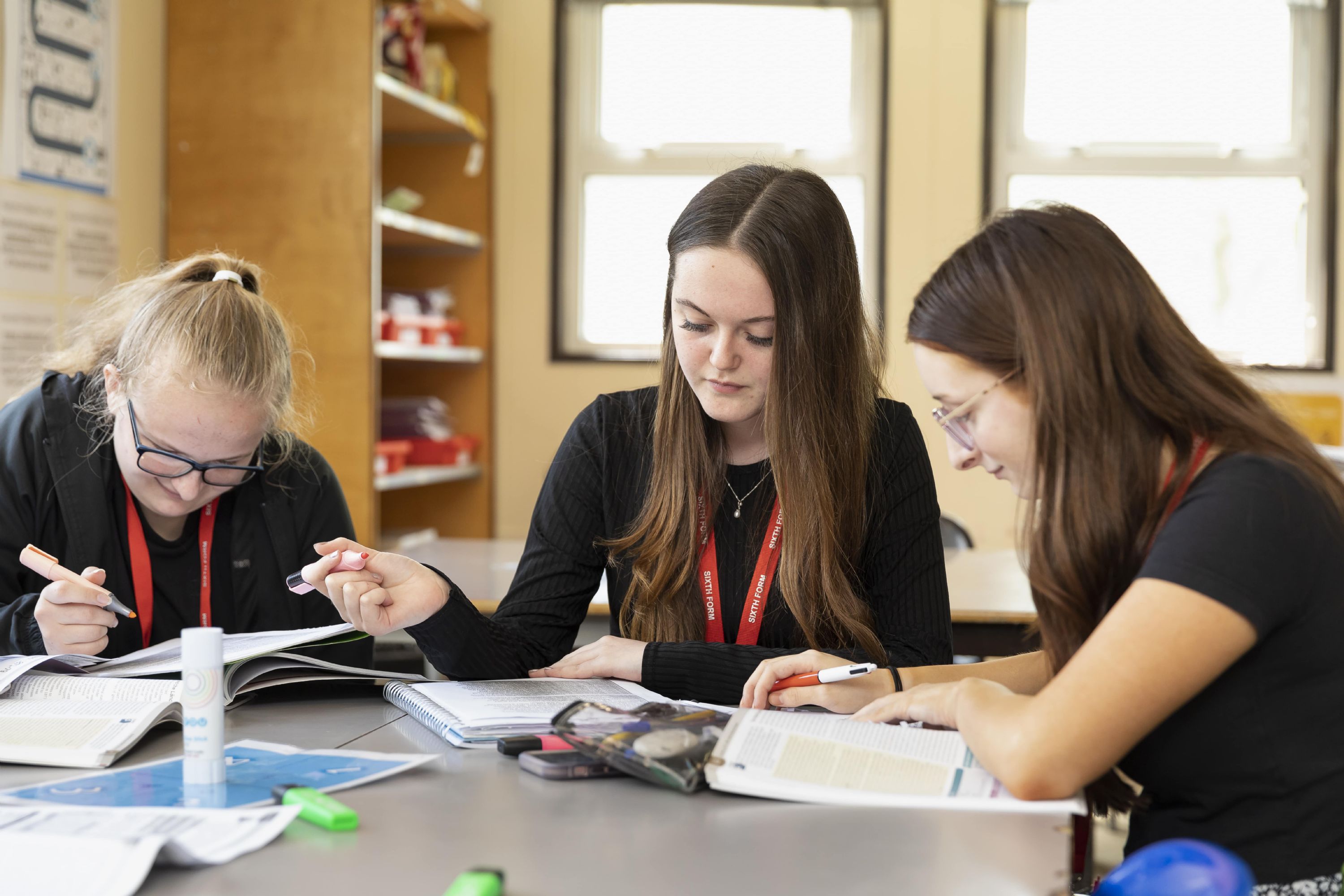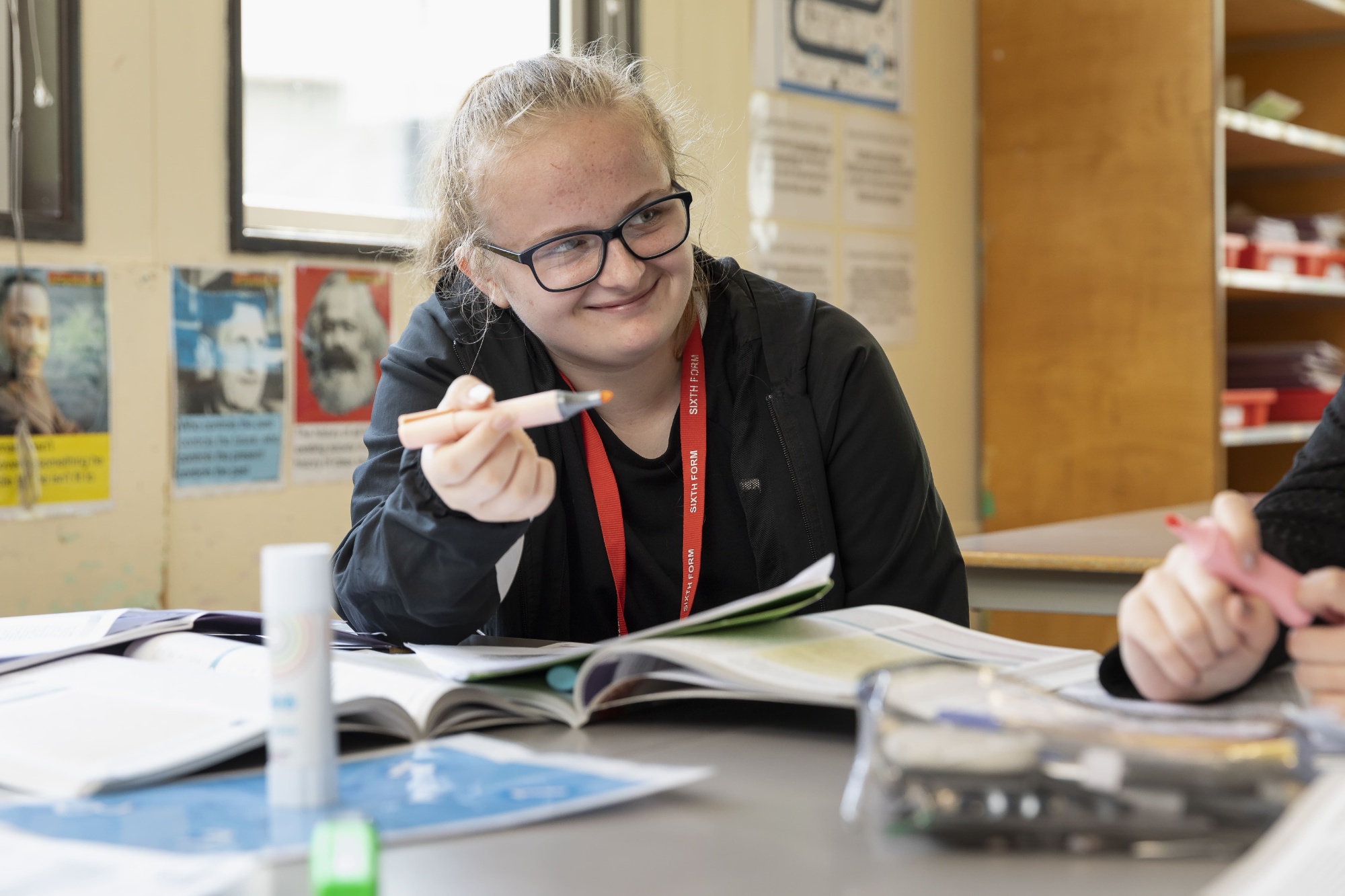History
Curriculum Leader: Ms C Leeke - leekea@saintgeorgescofe.kent.sch.uk
History allows you to not only develop knowledge of the past, but also a broader understanding of the human condition and human nature. It is a discipline that requires the precision of a scientist, the persistence of a detective and the imagination of a novelist. The study of history should teach you to ask the right questions, think critically, analyse dispassionately, and communicate with power and clarity. It also should empower you to better understand the human condition: who we are, where we came from, and where we are going.
Subject Requirements
- GCSE English - Grade 5 or above
- GCSE History - Grade 5 or above
Intent
History allows you to not only develop knowledge of the past, but also a broader understanding of the human condition and human nature. It is a discipline that requires the precision of a scientist, the persistence of a detective and the imagination of a novelist. The study of history should teach you to ask the right questions, think critically, analyse dispassionately, and communicate with power and clarity. It also should empower you to better understand the human condition: who we are, where we came from, where we are going.
The GCE History course has been designed to help you understand the value and significance of British and global events in the past. In the process you will gain a deeper understanding of how Britain became an industrial power, Britain’s colonial impact on India, and how people in both India and America fought for their freedoms.

Implementation

Through the A level history course, students are able to develop the skills laid out in KS3 and KS4. Students will develop a much stronger grasp of disciplinary knowledge involved in history such as change and continuity, evidence, interpretation, and cause and consequence.
We ensure that SEND and disadvantaged children are given the necessary support in class to fully access the Curriculum and that equal opportunities are given to all.
Impact
The Saint George’s History curriculum is intended to help students access the next stage in their academic and personal lives. Three assessment objectives are used throughout the scheme of work and in A Level to assess a wide range of skills. These are:
- AO1: Understanding, explaining, and communicating knowledge of the subject and of the disciplinary skills. (50-60%)
- AO2: Analyse and evaluate appropriate source material in its historical context (20-30%)
- AO3: Analyse and evaluate, in relation to the historical context, different ways in which aspects of the past have been interpreted (20-30%)
These three objectives will give students the skills needed to: demonstrate command of a substantial body of historical knowledge, understand how people have existed, acted and thought in the context of the past, read and use texts and other source materials critically and empathetically, express themselves orally and in writing with coherence, clarity and fluency, gather, organise and deploy evidence, data and information, work with others and have respect for others’ reasoned views, work collaboratively and participate effectively in group discussions, and show empathy and imaginative insight.

Topics
In search of the American Dream: USA 1917-1996
This option comprises a study in breadth, in which students will learn about the dramatic political, economic and social transformation of the USA in the twentieth century, an era that saw the USA challenged by the consequences of political, economic and social inequalities at home and of its involvement in international conflict.
The focus of study is on developments and changes over a broad timescale and so the content is presented as themes spanning a significant duration: 1917-80. This option also contains a study in depth of historical interpretations on a broad question, which is contextualised by and runs on from, the themes: what impact the Reagan presidency had on the USA in the years 1981–96.
India, c1914-1948: the road to independence.
This option comprises a study in depth of the transition of the Indian sub-continent from a colony to independence. The gaining of Indian independence influenced both the nature of civil rights campaigning and the search for national self-determination throughout the world.
Students will gain an in-depth understanding of the changing relationship between Britain and India from the outbreak of the First World War to the achievement of independence for the Indian sub-continent, and of the reasons for this, with reference to Indian nationalism.
Industrialisation and social change in Britain, 1759-1928
This option comprises two parts: the Aspects in breadth focus on long-term changes and contextualise the Aspects in depth, which focus in detail on key episodes.
Together, the breadth and depth topics explore ways in which Britain changed from the mid-eighteenth to the early twentieth century by looking at some of the industrial inventions and innovations that changed the lives of British men, women and children, alongside broader changes in the workplace and the profound changes in attitudes to children and childhood. Whilst mainly social and economic, this option also enables students to explore the impact of key political events and legislation.
Assessments
80% exam over 3 papers and a 20% NEA
- Paper 1 (30%): In search of the American Dream: USA 1917-1996
- Paper 2 (20%): India (c1914-1948): The road to independence
- Paper 3 (30%): Industrialisation and social change in Britain (1759-1928):
- Coursework (20%): The purpose of this coursework is to enable students to develop skills in the analysis and evaluation of interpretations of history in a chosen question, problem, or issue as part of an independently researched assignment.
Examining board link: Edexcel A Level History
History Future Plans
Museums, galleries, libraries, and other historical archives all offer opportunities to pursue typical History careers. Some roles will be administrative and curatorial, and others will be in research or education based, adding to, or imparting the body of knowledge about cultural heritage and history.
Adaptable skills:Law/legal, business consultancy firms and communications teams within larger organisations, national and local government, not-for-profit organisations, political parties, print and electronic media organisations, professional associations and peak bodies, public/private schools and universities, radio and television corporations, unions, Business Development Assistant/Manager, Contracts Advisor, Procurement Officer and Business Support Manager, accountancy, and finance.
Revision Materials
- Edexcel History Past Papers
- Textbook: In Search of the American Dream
- Textbook: Indian Independence
- Textbook: Industrial and Social Change in Britain
